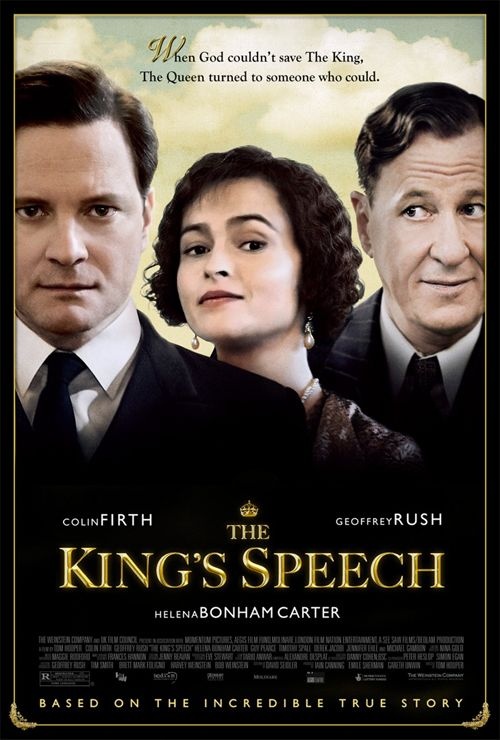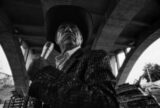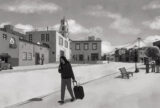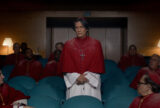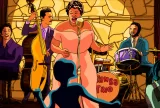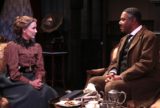11.10.2010 | By Ted Faraone |


There are several delicious ironies about “The King’s Speech,” billed as an historical drama and directed by Tom Hooper from a screenplay by David Seidler. The first is the title. The King’s Speech is given at the opening of the British Parliament. To your critic’s knowledge, it has been The Queen’s Speech since 1952, when Elizabeth II ascended the throne following the untimely death from lung cancer of her father, King George VI, one of pic’s principals ably played by Colin Firth. Since the next three in line for the throne today are men, the Speech is likely to be the King’s again. George VI had a terrible stammer, which made it difficult for him to perform many of his public duties as Duke of York, younger brother of David, the Prince of Wales, who would later become Edward VIII, Duke of Windsor. The latter is played by Guy Pearce in a rather one-dimensional portrayal of a self-indulgent royal. George VI, who had a more down-to-earth understanding of his duty, was known as Bertie to his family. His wife is a legend of 20th Century Britain, Lady Elizabeth Bowes-Lyon (Helena Bonham Carter), who, when she was still the Duchess of York, set out on her own to find a speech therapist for her husband. This brings up pic’s second delicious irony: Helena Bonham Carter is the great-granddaughter of Herbert Henry Asquith, English Prime Minister from 1908 to 1916, the first prime minister to serve under George V (played here by Michael Gambon), father of pic’s subject, and great niece of Violet Asquith, a Liberal member of Parliament for many years and close friend of Winston Churchill, who is played by Timothy Spall in a less than ideal bit of casting. The goings on in this pic had to be gossip at her family’s dinner table. For those who care, the shapely Carter was most certainly padded to play the matronly Elizabeth, who, during pic’s action, never passes her 40th birthday.
The Duke of York put little stock in speech therapy. Treatments of the day (Pic’s action covers the period from the mid 1920s to the outbreak of war in September 1939) were both appalling and humiliating. One doctor even advised the Duke that smoking cigarettes relaxed the throat and calmed the nerves. It was no surprise that when the Duchess finally encountered Australian ex-pat speech therapist Lionel Logue (Geoffrey Rush, who also gets executive producer credit) that the Duke offered resistance. Logue’s methods were unorthodox to say the least. He is self-taught, a former actor, who got into speech therapy helping traumatized Australian soldiers returned from the First World War. There was no textbook. He had to make it up as he went along.
Now enters the buddy-film aspect of this period piece. Logue won’t treat the Duke unless the His Royal Highness submits to his rules on his turf. He insists that the Duke call him Lionel and that he will call the Duke “Bertie.” The Duke grudgingly submits to acting as the social equal of his speech coach. Unwilling to divulge much private information, the Duke does admit that his stammer began around age four or five and that his father, the King, encouraged his brother David to tease him about it. Michael Gambon’s George V is the gruff, remote father and family man of the history books. But as King, he has learned one important modern lesson: Radio has turned royalty into actors. His annual Christmas broadcast to the Empire drives the point home. His advice to Bertie is like a Nike slogan barked by a drill sergeant.
A friendship between King and subject can never be normal, no matter how high the regard each holds for the other. The dynamic between Rush and Firth captures this delicate balance. In matters of speech, Logue is in charge. His methods include exercises, encouragement, and provocation. Provocation proves to the pupil that the stammer has a non-physical component: When his temper is aroused the Duke spits out words in continuous flow. But when Logue steps over the line, more out of enthusiasm for his pupil’s ability than anything else, the Duke accuses him of treason and cuts him off. His offense? With George V having passed, David has become King, and he is making a mess of the job. The abdication crisis of 1936 looms, and Bertie is next in line. David has already teased him about wanting to usurp the throne, an idea that Bertie abhors. The last thing he wants to be is chief of state in an era when the chief of state has to speak in public. Logue’s enthusiasm (“You can outshine David”) in that instant is impertinent and incisive — too incisive. Logue’s attempt to apologize is rebuffed. Give helmer Hooper credit for knowing how to use the close-up to good effect with pros like Rush and Firth.
Eventually, with a coronation to perform, Bertie (now George VI), recalls Logue to his service. A scene in Westminster Abbey with Derek Jacobi as a presumptuous Archbishop of Canterbury reveals the esteem in which Bertie is held by the British establishment. Zero. He is accorded deference because of his position. His years of stammering and failed public appearances have cost him respect. His courtiers think they can manipulate him. Thanks to Logue’s help in mustering the courage he had as a naval officer in the First World War, George VI overcame what studies say is the greatest fear people in civilized nations face: the fear of public speaking. In overcoming that fear he became the King whose grace under pressure during the bombing of London inspired a quarter of the world’s population to resist the Axis. Logue would continue to assist the new King in rehearsing all his wartime broadcasts, and he was rewarded in 1944 with an honor for service to the monarch. The King, who most certainly was unaware of it, also inspired a young Australian boy who also had a stammer. The boy listened to the King on the radio and thought, if the King can beat his stammer, so can I. After almost 50 years writing for film and TV, David Seidler would write pic’s screenplay. He was fortunate to have the cooperation of Logue’s descendants, who kept many of his period diaries. He was also fortunate to have the cooperation of King George VI’s widow, by then the Queen Mother Elizabeth, who asked only that the film not be made until after her death — the memories were too painful. It was a long wait. She lived to be 101. The rest is history.
It is impossible to delve into the entire nuance “The King’s Speech” packs into 118 minutes. Pic is rated R due to language. It seems that profanity trips off the tongue of the stutterer with ease. But it would be a mistake for readers to think that “The King’s Speech” is entirely without comic relief. Logue repeatedly snatches cigarettes from his star pupil as the latter is about to light them. It would have been to George VI’s advantage to heed him and kick the habit. A scene in which Myrtle Logue (Jennifer Ehle) arrives home unexpectedly early only to find the Queen taking tea in her dining room is priceless. It is at pic’s ending that its neatest irony unfolds. It follows George’s radio broadcast to the Empire at the outset of war. It may be a tad difficult to believe, but it is true.
Rated: Rated R for some language.
Release Date: 2010-11-26
Screenplay: David Seidler
Official Website: Not available

